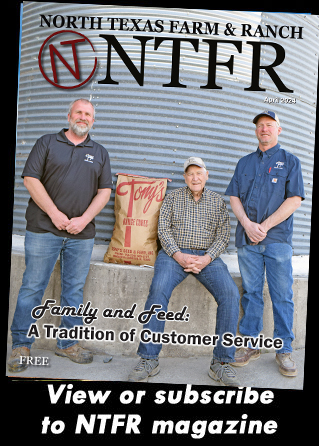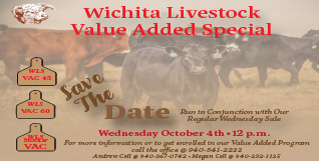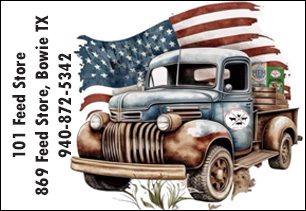Farm & Ranch
[AgriLife Today] Cattle Trails Wheat and Stocker Cattle Conference set for July 26 in Wichita Falls
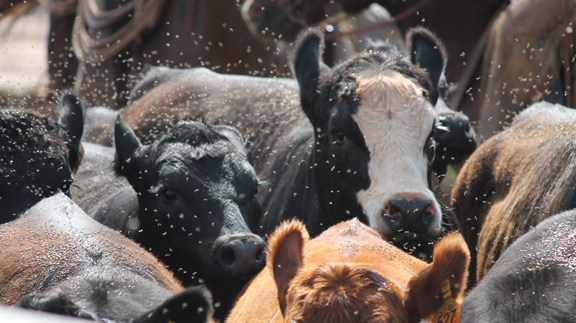
Writer: Kay Ledbetter, 806-677-5608, [email protected]
Contacts: Stan Bevers, 940-552-9941, [email protected]
Marty New, 580-255-0546, [email protected]
WICHITA FALLS – Pricing wheat and cattle at profitable levels has been challenging during 2016, said a Texas A&M AgriLife Extension Service agricultural economist.
The Cattle Trails Wheat and Stocker Cattle Conference on July 26 will cover how producers in the North and Rolling Plains regions of Texas and Southwestern Oklahoma can meet these challenges and prepare for 2017, said Stan Bevers, AgriLife Extension economist at Vernon.
While it appears the weather has returned to normal and agricultural production has reached more favorable levels, greater production has led to commodity prices below cost of production, Bevers said.
Add to this environment more government directives regarding production, and a producer’s stress level rises, he said. One regulation cattle producers will face in 2017 is the implementation of the Veterinary Feed Directive.
In this year’s conference, AgriLife Extension and Oklahoma Cooperative Extension Service experts will cover how producers can continue to remain profitable under these prices and the new regulations, Bevers said.
The conference, which alternates between Texas and Oklahoma each year, will be from 8 a.m. to 3 p.m. at the MPEC Event Center, 1000 5th St., Wichita Falls. Registration is $25 per person and includes educational materials, a noon meal and refreshments.
Producers are encouraged to preregister by contacting their local AgriLife Extension county agent, their Oklahoma Cooperative Extension county educator or Allison Ha at the Texas A&M AgriLife Research and Extension Center near Vernon at 940-552-9941, ext. 225 or [email protected].
The slogan of the conference is “Driving your cattle to profits,” although Bevers said the last couple of years have made it tough to generate a consistent profit.
“We know agricultural producers are continuing to plant crops and grow cattle,” he said. “They must also be aware of new directives on how animal drugs can be utilized. The Veterinary Feed Directive is a federal regulation from the Food and Drug Administration that controls the use of animal drugs.”
Speakers will be from both Texas and Oklahoma. Dr. Emi Kimura, AgriLife Extension agronomist at Vernon, will provide a wheat variety update, while Bevers will provide a wheat and cattle market update.
Dr. Chris Richards, Oklahoma State Extension and research beef cattle nutrition specialist in Stillwater, Oklahoma, will discuss balancing the scales in cattle production between efficiency, profitability, consumerism and the environment.
After lunch, Dr. Tom Hairgrove, AgriLife Extension program coordinator for livestock and food animal systems, College Station, will provide an overview of the Veterinary Feed Directive. Dr. Ron Gill, AgriLife Extension livestock specialist in College Station, will cover how a cattle producer should go about implementing the directive on their operation.
Industry sponsors will have their products on display during the event.
For more information, go to http://agrisk.tamu.edu.
-30-
Find more stories, photos, videos and audio at http://today.agrilife.org
Farm & Ranch
Hazards of Backyard Poultry
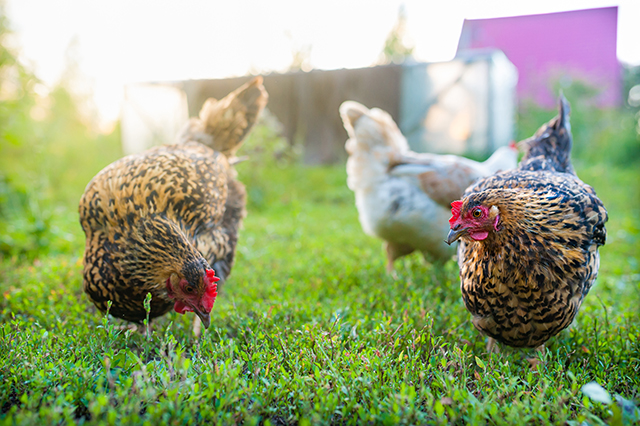
By Barry Whitworth, DVM
Having backyard poultry is a popular agriculture enterprise. According to the United States Department of Agriculture, 0.8 percent of all households in the United States have chickens. People keep chickens for a variety of reasons with table eggs being one of the more common reasons.
Unfortunately, some of these poultry producers are not aware of the hazards that come with keeping poultry because many times they carry pathogens but appear healthy.
Chickens are carriers of several zoonotic diseases. These are diseases that can be passed from animals to humans. According to a recent survey in Pennsylvania, a majority of backyard poultry producers were aware of the dangers of avian influenza. However, this study also revealed that far fewer producers were aware of the risk of possible exposure to Salmonella and Campylobacter.
The lack of knowledge about the hazards of raising poultry likely contributes to the continued issues of Salmonella outbreaks associated with backyard poultry. In 2023, the Centers for Disease Control and Prevention reported 1,072 illnesses of Salmonella linked to backyard poultry, and 272 of those patients required hospitalization. Oklahoma reported 43 individuals with the disease.
To read more, pick up a copy of the April issue of NTFR magazine. To subscribe by mail, call 940-872-5922.
Farm & Ranch
Ag Elsewhere: Wyoming
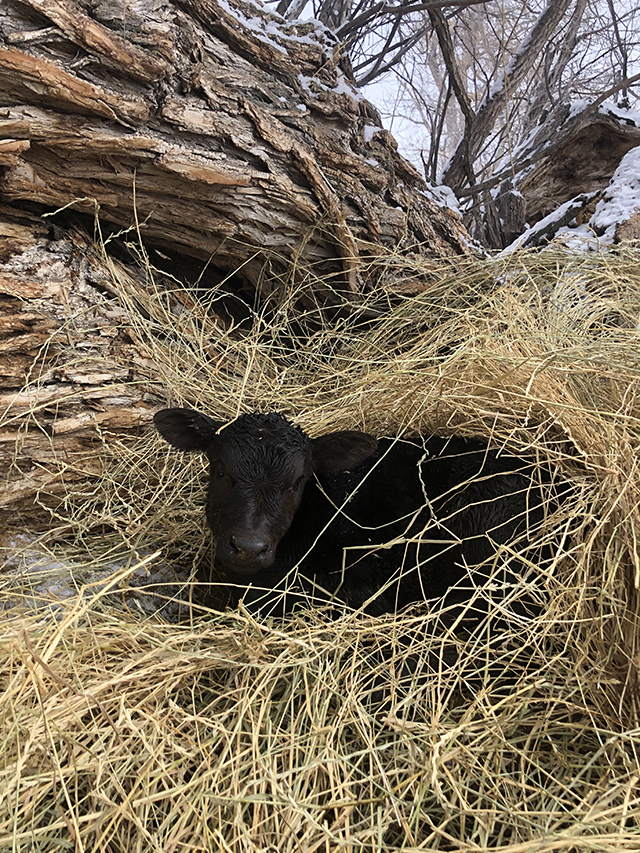
By Tressa Lawrence
Babies are tucked away in every nook and cranny. Many ranchers across Wyoming have baby animals popping up all over this time of year.
Farm & Ranch
Ag Elsewhere: Montana
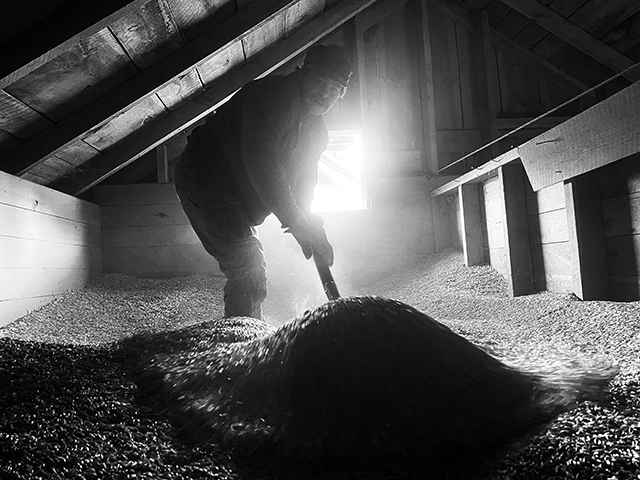
By Lindsey Monk
Another load of grain in to keep feeding the calves until the green grass can really start popping.
-

 Country Lifestyles1 year ago
Country Lifestyles1 year agoScott & Stacey Schumacher: A Growth Mindset
-

 Equine7 months ago
Equine7 months agoThe Will to Win
-

 Country Lifestyles7 years ago
Country Lifestyles7 years agoStyle Your Profile – What your style cowboy hat says about you and new trends in 2017
-

 Country Lifestyles4 years ago
Country Lifestyles4 years agoAmber Crawford, Breakaway Roper
-

 HOME7 years ago
HOME7 years agoGrazing North Texas – Wilman Lovegrass
-

 Country Lifestyles7 years ago
Country Lifestyles7 years agoDecember 2016 Profile, Rusty Riddle – The Riddle Way
-

 Country Lifestyles8 years ago
Country Lifestyles8 years agoJune 2016 Profile – The man behind the mic: Bob Tallman
-

 Outdoor9 years ago
Outdoor9 years agoButtercup or Primrose?

